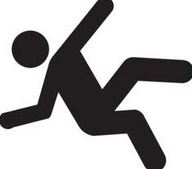Understanding and Managing Drop attacks in Meniere’s Disease
Table of Contents
Introduction:
One of the most distressing symptoms of Meniere’s disease is drop attacks. These sudden terrifying falls without warning can be potentially dangerous, especially for older adults. In this article, we will discuss drop attacks and provide strategies for managing them. It is important to remember that not everyone who suffers from the other symptoms of Meniere’s, such as dizziness, vertigo, tinnitus and hearing loss, experiences drop attacks.
Symptoms of Drop Attacks
Drop attacks are, without doubt, one of the most extreme symptoms of Meniere’s disease. These sudden falls without any prior warning are caused by a sudden loss of balance, and the person may feel as though the ground has given way beneath their feet. Others speak of a sudden feeling of being on a jet coaster and their legs are thrown in the air. It can be a surreal experience and a dangerous one.
Causes of Drop Attacks
The exact definitive cause of Meniere’s disease is unknown, but it is believed to be caused by a buildup of fluid in the inner ear. This fluid buildup can affect the balance and hearing systems, leading to symptoms such as drop attacks. In drop attacks themselves, it would seem logical that a sudden shift in either fluid or crystals within the endolymphatic sac puts sudden increased pressure on the balance nerves.
Frequency of Drop Attacks
The frequency of drop attacks in Meniere’s disease can vary from person to person. Some people may experience several attacks per day, while others may have only a few attacks per year. The severity of the attacks can also vary, with some people experiencing mild falls and others experiencing more severe falls.
Prevention
While there is no cure for Meniere’s disease, there are steps that can be taken to prevent drop attacks. These include making certain lifestyle changes such as reducing stress, maintaining a healthy diet, and avoiding triggers. Medications can also be used to manage symptoms, such as diuretics, antihistamines, and corticosteroids. Physical therapy and assistive devices can also help improve balance and reduce the risk of falls.
Management
Managing drop attacks in Meniere’s disease is critical to improving the quality of life for those who suffer from this condition. Lifestyle changes, medications, physical therapy, assistive devices, and surgery are all strategies that can be used to manage drop attacks. Making certain lifestyle changes such as reducing stress and maintaining a healthy diet can help prevent attacks. Medications can be used to manage symptoms, while physical therapy and assistive devices can improve balance and reduce the risk of falls. In severe cases, surgery may be suggested.
Drop attacks in Meniere’s disease can be distressing and potentially dangerous. However, with the right support and management strategies, people with Meniere’s disease can live a full and active life despite the challenges posed by drop attacks. If you are experiencing symptoms of Meniere’s disease, it is essential to see a healthcare professional for proper diagnosis and treatment.
Sudden Drop Attack – JAMA – Video
“Drop attacks are sudden falls without warning that can occur without loss of consciousness or neurologic symptoms as a rare manifestation of Meniere disease. Patients typically describe a sensation of being pushed, thrown, or knocked to the ground or have a sudden illusion of environmental tilt causing the fall. This video shows a drop attack (also sometimes called an otolithic crisis, Tumarkin drop attack, or drop vestibular attack) in a 47-year-old man with Meniere disease manifest as longstanding recurrent vertigo, fluctuating hearing loss, and tinnitus in his left ear. Pathophysiology is thought to be associated with sudden changes of utricle or saccule function or by sudden stimulation and mechanical deformation caused by pressure differentials within the inner ear or by a rapid change in electrolyte levels in the endolymph and perilymph.” JAMA Neurology.
If you found this article useful Click here to support Meniere’s Help paypal.me/menieres
References/Further reading:
- “Meniere’s Disease” (National Institute on Deafness and Other Communication Disorders) – https://www.nidcd.nih.gov/health/menieres-disease
- “Meniere’s disease: Symptoms and causes” (Mayo Clinic) – https://www.mayoclinic.org/diseases-conditions/dizziness/symptoms-causes/syc-20371787
Help other sufferers. Have you experienced drop attacks? How did you deal with it? Tell us all about it in the comments box below or email Mike at meniereshelp@gamail.com
